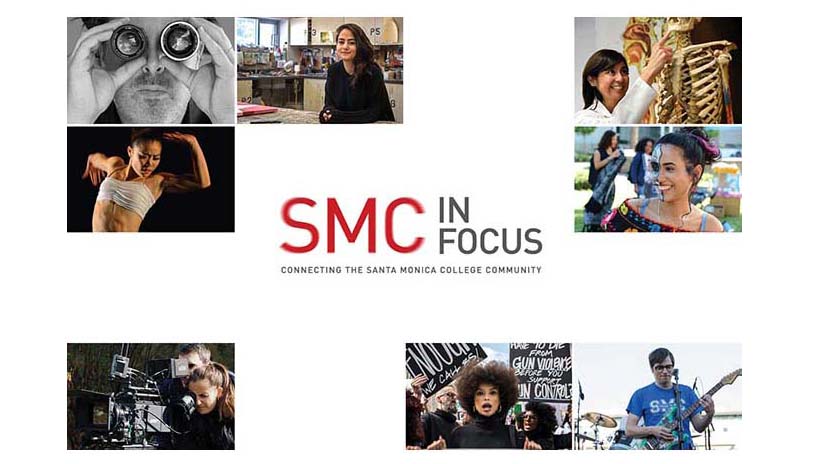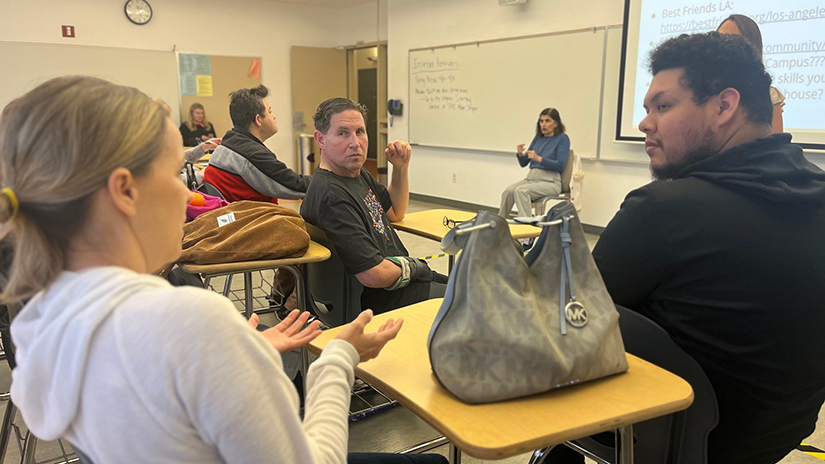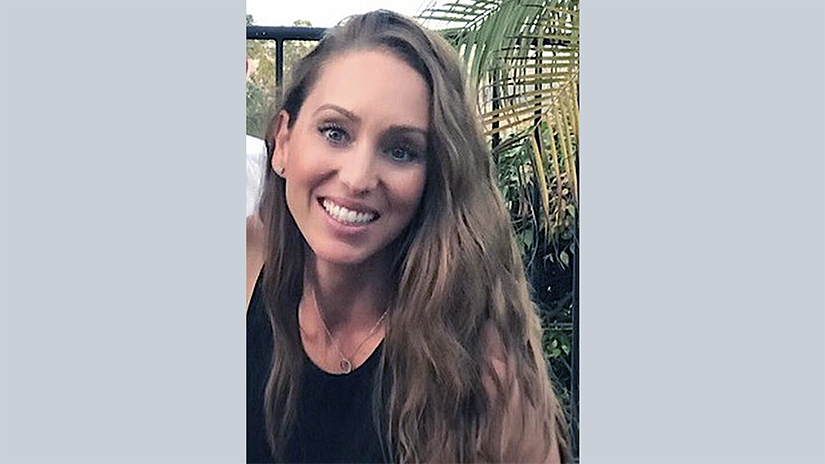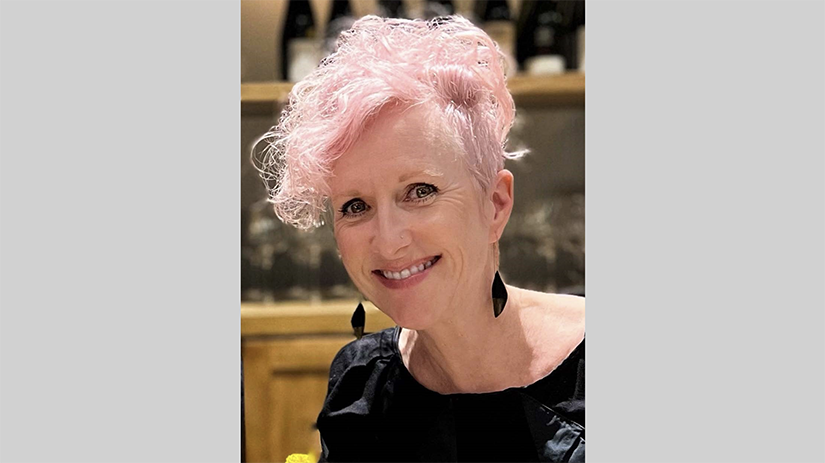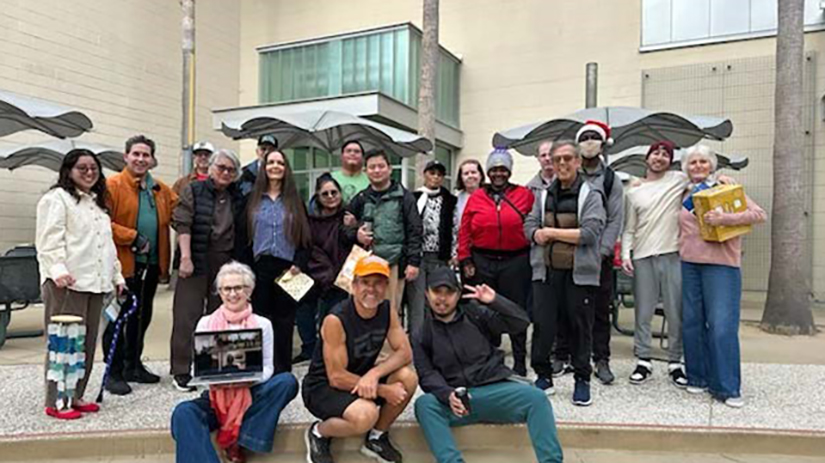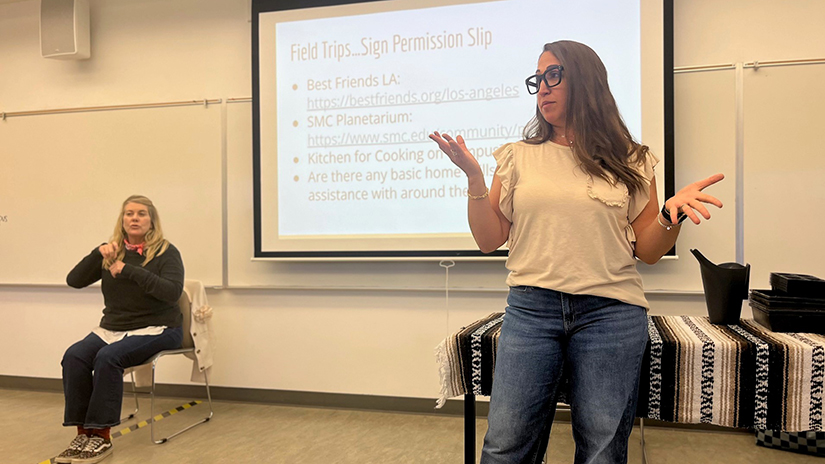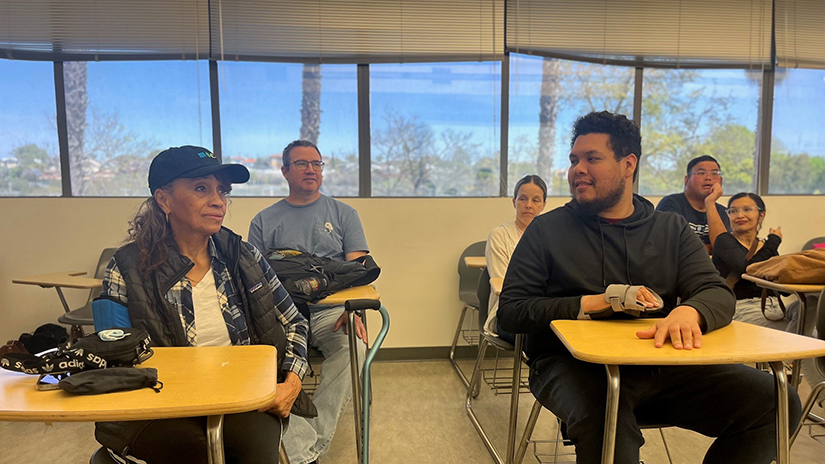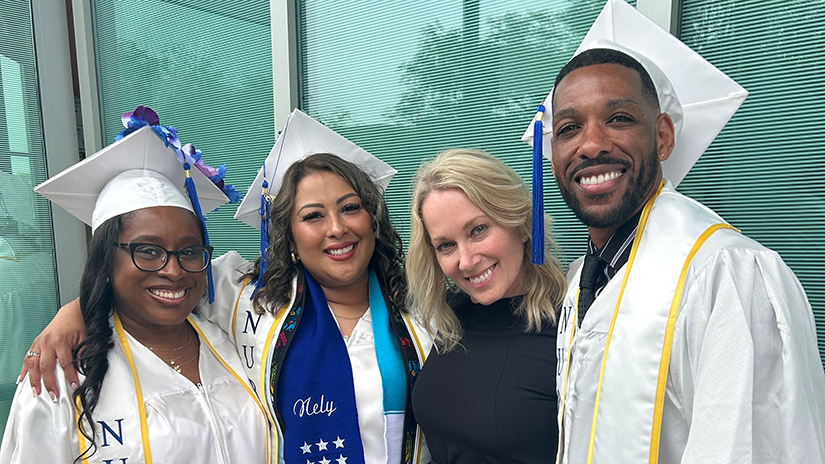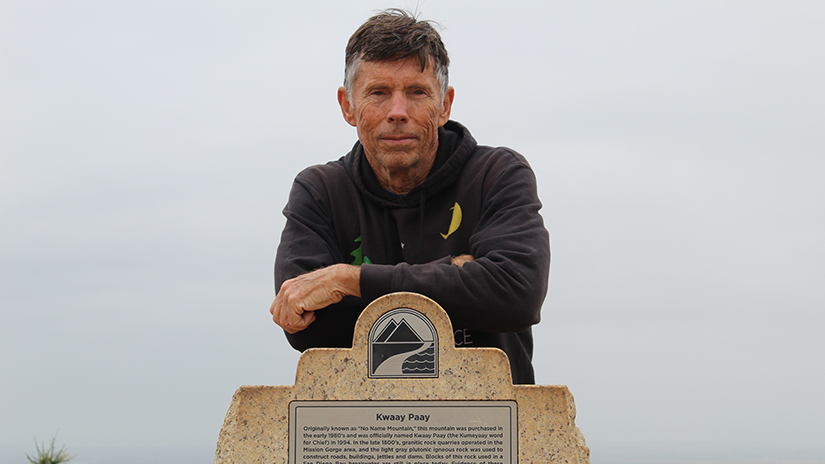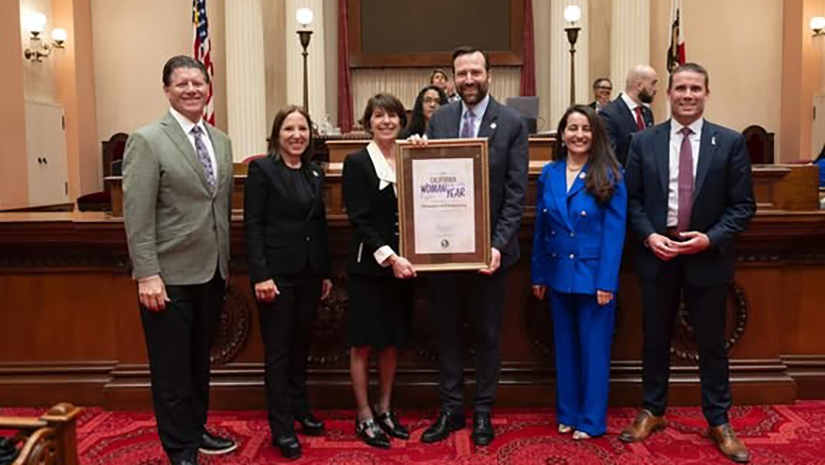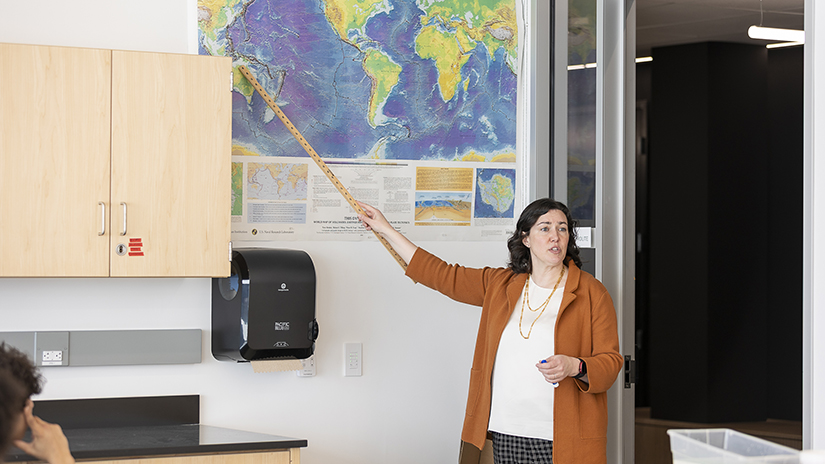
When a severe brain injury strikes, tasks that most people take for granted can become overwhelming. But at Santa Monica College, people with acquired brain injuries are discovering new paths forward to find greater independence as well as a supportive community.
Since 1991, SMC’s Acquired Brain Injury (ABI) Program has assisted adults with the condition — defined as nonprogressive brain damage sustained after age 13 due to trauma, stroke or illness. The program offers two tracks. The for-credit option bolsters academic courses with support services to complete a degree or certificate at SMC or transfer to another accredited higher education institution. The free noncredit track offers coursework to further personal development and/or work toward academic readiness. Noncredit classes are also available year-round through SMC’s Emeritus Pathfinders Program aimed at physical fitness, improving communication skills and enhancing cognitive abilities.
The ABI Program currently enrolls over 160 students — and occupational therapist and SMC ABI specialist Erika Deuel knows them all. When they enter the program, “each student participates in an individualized assessment to identify their personal and educational goals,” she explains. “Based on this assessment, we recommend reasonable accommodations to address the student’s educational limitations and ensure equal access throughout their time at SMC.”
Whether a student’s dream is returning to work, completing a college degree or simply regaining greater independence, SMC’s ABI Program offers a clear and compassionate roadmap to success. “The key is that students genuinely love the experience — it’s what keeps them engaged and motivated,” Erika says.
Personalized Support
To help fulfill participants’ goals, the program supplements its courses with academic coaching, learning strategies and access to on-campus resources. Depending on their needs, students interested in noncredit classes are referred by Erika to instructors in the program who have specialized experience working with individuals with acquired brain injury.
For example, Julia Nichols, a speech language pathologist, is an instructor for the noncredit ABI Connections class. This in-person course helps students improve cognitive and communication skills for independent living — and also helps them build lasting friendships.
“Friendships are a really important aspect,” Julia says. “When you sustain a brain injury, the people you knew before may not know how to interact with you anymore. We often see those friendships fall away.”
In ABI Connections, however, students form a tight-knit and deeply supportive community. “I’ve never experienced such a kind group of students who compliment and encourage each other,” she says.
Julia incorporates interactive projects — like learning about Georgia O’Keeffe for Women’s History Month, then creating artwork inspired by the artist. Students with different skill levels can all participate, whether they face short-term memory loss, visual impairments or have limited mobility. “Everyone is part of the group, no matter what their challenges are,” Julia emphasizes.
“They might start in ABI Connections,” Erika notes, “then bridge over to academic classes, and then look at a career path. Their pathway may have changed, but now they’re open to new and meaningful opportunities they may have never imagined.”
From Recovery to Reinvention
For participants like Kenny Elster, the journey is both deeply personal and profoundly inspiring. He was a straight-A student in SMC’s rigorous Scholars Program and on his way to becoming a child psychologist. But then a drunk driver ran a red light and caused Kenny’s traumatic brain injury. That was in 1988, and his recovery has been slow but steady ever since. “I suffered brain damage in my frontal lobe and my parietal lobe,” he explains.
Kenny walks with a cane, and his once-dominant right hand is partially paralyzed, so he must rely on his left. “I was in the hospital for about nine months, and then I had to relearn how to read, write, walk, talk — everything — all over again,” he recalls. “The brain is such an amazing thing, but it can be cruel as well.”
Despite the setbacks, Kenny has made remarkable progress through the ABI Program, in which he has enrolled in both the noncredit and credit paths. He’s a popular member of the ABI Connections class, known for his positivity and knack for research — earning him the affectionate nickname “the Googler.”
“Kenny is always working on improving what he can do physically and emotionally,” Julia says. “And he’s incredibly helpful to his classmates.”
Kenny is on track to earn his associate degree at SMC and hopes to one day work as a counselor or start a business to support others with similar experiences. “I just want to help people,” he says. “Because my family has been so amazing, and just giving back, I think, is important. That’s one of the reasons we’re on this earth — to give back and communicate, even with just a smile.”
Strong Bonds
That shared understanding creates a strong bond among students and faculty alike. “It is so rewarding,” Erika says. “These are extraordinary individuals, and I feel fortunate to be part of their journey.”
Julia recalls one humorous moment after breaking her toe and showing up to class on crutches. “They said, ‘You’re one of us now!’” she recalls with a laugh. “There’s a wonderful sense of humor and camaraderie in this community.”
As Kenny puts it, “We’re the walking wounded — but walking means moving forward.”
Together, the students of Santa Monica College’s ABI Program are proving that even after a life-altering brain injury, progress, purpose and connection can all be achieved.
* * *
To learn more about SMC’s Acquired Brain Injury Program or to enroll in credit or noncredit tracks, contact the Center for Students with Disabilities at 310-434-4265 or dsps@smc.edu.



